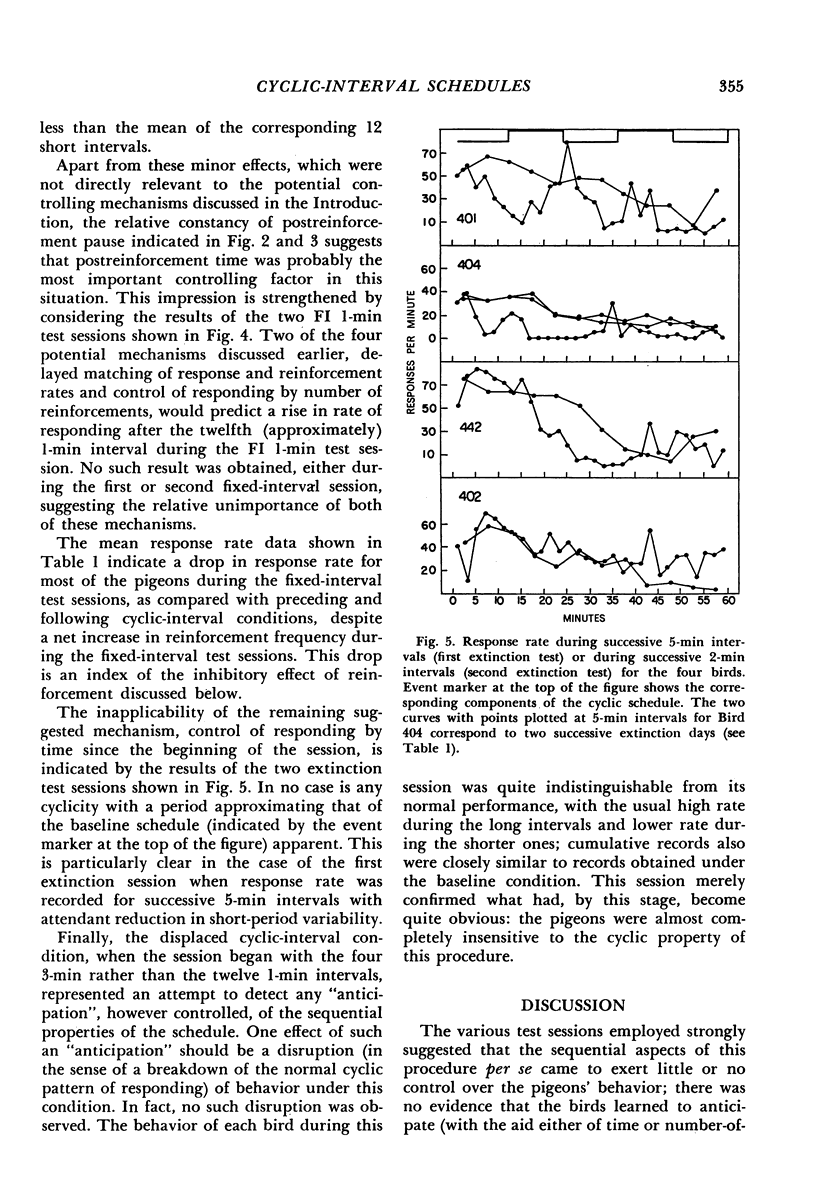Abstract
Pigeons were exposed to a cyclic schedule in which each cycle was composed of twelve 1-min fixed intervals followed by four 3-min fixed intervals; four such cycles comprised an experimental session. The pigeons responded at a much higher average rate during the 3-min intervals than during the 1-min intervals. Other effects were a depression of responding during the first short interval of each cycle and a shortening of postreinforcement pause during the second short interval. The main effect is attributable to a relatively fixed pattern of responding after reinforcement; this pattern consisted in a pause of approximately constant duration followed by responding at an approximately constant rate until the next reinforcement, resulting in much higher average response rates during the longer interreinforcement intervals. The other effects seem attributable to relatively slight differences between the pattern of responding characteristic of later long intervals and the pattern during later short intervals of each cycle. A major implication is that the pigeon is largely insensitive to the sequential properties of many interval-reinforcement schedules. A description of interval-schedule “frustration” phenomena in terms of the inhibitory effects of reinforcement is discussed in relation to these results.
Full text
PDF










Selected References
These references are in PubMed. This may not be the complete list of references from this article.
- AMSEL A., ROUSSEL J. Motivational properties of frustration. I. Effect on a running response of the addition of frustration to the motivational complex. J Exp Psychol. 1952 May;43(5):363–366. doi: 10.1037/h0059393. [DOI] [PubMed] [Google Scholar]
- AMSEL A. The role of frustrative nonreward in noncontinuous reward situations. Psychol Bull. 1958 Mar;55(2):102–119. doi: 10.1037/h0043125. [DOI] [PubMed] [Google Scholar]
- REYNOLDS G. S. Attention in the pigeon. J Exp Anal Behav. 1961 Jul;4:203–208. doi: 10.1901/jeab.1961.4-203. [DOI] [PMC free article] [PubMed] [Google Scholar]
- STADDON J. E. REINFORCEMENT AS INPUT: CYCLIC VARIABLE-INTERVAL SCHEDULE. Science. 1964 Jul 24;145(3630):410–412. doi: 10.1126/science.145.3630.410. [DOI] [PubMed] [Google Scholar]


